After War
Reflections at the dawn of the ‘Post-LTTE Moment’
by Malinda Seneviratne
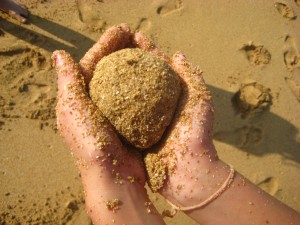 This is a momentous occasion for Sri Lanka and Sri Lankans, regardless of ideological persuasion and preferred Utopia. Whether or not, as some have (in my opinion injudiciously) predicted, the LTTE will revert to its guerrilla avatar, it is clear that a point of no return has been crossed. We are now officially in the post-LTTE era in that the LTTE of Velupillai Prabhakaran, the LTTE capable of UDI posturing, the LTTE of strutting around with a ‘Sole-Rep’ tag, the LTTE claiming authority over a de-facto state, the LTTE with something close to a conventional army, has to be spoken of in the past tense. No future LTTE will be that LTTE, just like the post-89 JVP could never be the JVP of ’71 or the JVP of 88-89.
This is a momentous occasion for Sri Lanka and Sri Lankans, regardless of ideological persuasion and preferred Utopia. Whether or not, as some have (in my opinion injudiciously) predicted, the LTTE will revert to its guerrilla avatar, it is clear that a point of no return has been crossed. We are now officially in the post-LTTE era in that the LTTE of Velupillai Prabhakaran, the LTTE capable of UDI posturing, the LTTE of strutting around with a ‘Sole-Rep’ tag, the LTTE claiming authority over a de-facto state, the LTTE with something close to a conventional army, has to be spoken of in the past tense. No future LTTE will be that LTTE, just like the post-89 JVP could never be the JVP of ’71 or the JVP of 88-89.
For a nation that has been held ransom by this bunch of thugs for close to three decades, this is certainly a moment that warrants celebration, not least of all because this is a moment that many if not all insisted will never materialize. We were told, ‘the LTTE cannot be defeated’. We were told that Colombo will be reduced to rubble if Mahinda Rajapaksa decided to take on the LTTE militarily (as it happened, he didn’t have an alternative; the LTTE was spoiling for a fight and insisted on a military confrontation). We were told that we had no option but to sue for peace (read ‘surrender to terrorism’). In short, this denouement was not scripted. Or, to put it another way, it was scripted out. Nowhere in the grand plans that many, both here and abroad, had for Sri Lanka was there mention of the possibility that the LTTE would be so comprehensively defeated.
In a world where engagement with terrorism has engendered more terrorism, where nations far more powerful than us have floundered in such missions despite superior weaponry, larger and better trained armies, far more sophisticated intelligence networks and systems, strong and willing allies, the efforts of Sri Lanka vis-à-vis the LTTE, arguably the world’s most ruthless and resourceful terrorist outfit, surely deserves the highest accolades.
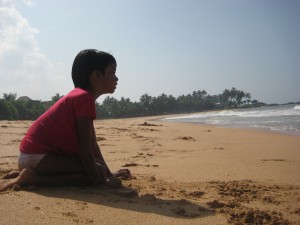 This nation that has had to face two bloody insurrections, a monumental natural disaster, contend with political intrigue, suffer the interference of powerful external forces, deal with poverty and unequal terms of engagement in the global political economy, can and should applaud itself for achieving this particular ‘unachievable’.
This nation that has had to face two bloody insurrections, a monumental natural disaster, contend with political intrigue, suffer the interference of powerful external forces, deal with poverty and unequal terms of engagement in the global political economy, can and should applaud itself for achieving this particular ‘unachievable’.
Celebration can take many forms. There can be the usual fire-cracker explosion of euphoria, the victory rallies across the country, the making of political capital, the rush to take credit whether it is deserving or not, and of course the waving of the national flag. I see no wrong, I do not object. On the other hand, I believe this is also a time for reflection and in particular self-reflection.
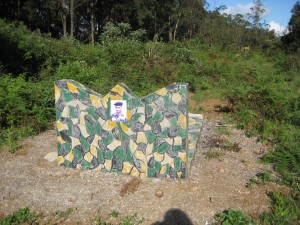 First of all let us all remember those who are no longer here to celebrate with us, those who made the supreme sacrifice so that this day could dawn, so that these celebrations can take place. Let us remember all those who had to die because killing innocent people was ‘fair game’ for the mass murderer called Velupillai Prabhakaran, a fact that his apologists chose to ignore. Let us remember the fact that this war necessitated a diversion of resources from other vital areas of national interest such as education, health, agriculture and industry. In short there was an opportunity cost here; a massive foregoing, a forfeiture whose affects will never be fully calculated.
First of all let us all remember those who are no longer here to celebrate with us, those who made the supreme sacrifice so that this day could dawn, so that these celebrations can take place. Let us remember all those who had to die because killing innocent people was ‘fair game’ for the mass murderer called Velupillai Prabhakaran, a fact that his apologists chose to ignore. Let us remember the fact that this war necessitated a diversion of resources from other vital areas of national interest such as education, health, agriculture and industry. In short there was an opportunity cost here; a massive foregoing, a forfeiture whose affects will never be fully calculated.
I call for a greater degree of sobriety because the celebration of this moment in this ‘moment after’ simply means that there was an unhappy ‘moment before’. Over 70,000 of our citizens perished before we could come to this ‘here and now’ of flag-waving. Property worth billions of rupees was destroyed. Infrastructure that could have changed the lives of millions of people never got built.
And then there’s ‘the enemy’, perceived and real. 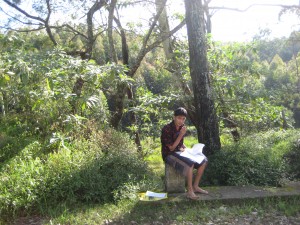 Should we not reflect now on the validity of perception? Should we ask ourselves if there is such an entity called a permanent enemy? Should we not walk a few miles along the pathways their thoughts have passed, reside for a while in the residencies of their concern, and test the textures now and then of the dreams they must have invited, entertained and allowed to take possession of their days and nights? Should we not do these things if we want to find out with what gaze we should look at them today, tomorrow and the day after?
Should we not reflect now on the validity of perception? Should we ask ourselves if there is such an entity called a permanent enemy? Should we not walk a few miles along the pathways their thoughts have passed, reside for a while in the residencies of their concern, and test the textures now and then of the dreams they must have invited, entertained and allowed to take possession of their days and nights? Should we not do these things if we want to find out with what gaze we should look at them today, tomorrow and the day after?
There is the ‘hardcore’. No one is born with some congenital ability to differentiate the hardcore from the innocent, the one who is ideologically committed to killing for a cause and the one who is coerced into killing. This is why it is prudent to screen the thousands who have streamed into welfare centres. Empathy does not necessarily bar circumspection.
We must remember, however, that even if there wasn’t the bloodbath that the David Milibands and Bernard Kouchners predicted (and salivated for?), blood certainly was shed. That blood belonged to citizens of this country. 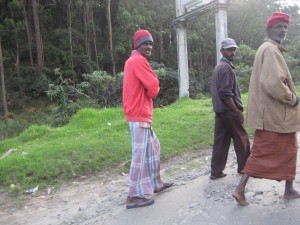 That blood cannot be allowed to be orphaned. It flowed out of bodies; bodies that contained minds, hearts, aspirations, bodies that contained lips that would have broken into smiles or half-smiles, wry or coy, lips that kissed or dreamed of kiss, bodies that were made of skin, of limbs, cheeks and eyelids, all of which would have once been tenderly touched by mothers and fathers. Yes, they killed. They wronged the most innocent. They were wrong. In the exchange of fire that is war there is no space for any tenderness. In this post-war moment, it will be hard to feel pity, but it will not be impossible to understand why a 12 year old came to hold a gun in his hand or how a 13 year old blew herself up or how a 15 year old had to be shot dead since this was the only way to stop him from killing 100 people by exploding himself.
That blood cannot be allowed to be orphaned. It flowed out of bodies; bodies that contained minds, hearts, aspirations, bodies that contained lips that would have broken into smiles or half-smiles, wry or coy, lips that kissed or dreamed of kiss, bodies that were made of skin, of limbs, cheeks and eyelids, all of which would have once been tenderly touched by mothers and fathers. Yes, they killed. They wronged the most innocent. They were wrong. In the exchange of fire that is war there is no space for any tenderness. In this post-war moment, it will be hard to feel pity, but it will not be impossible to understand why a 12 year old came to hold a gun in his hand or how a 13 year old blew herself up or how a 15 year old had to be shot dead since this was the only way to stop him from killing 100 people by exploding himself.
I just watched 3 young girls belonging to the LTTE’s suicide unit, recently captured, being interviewed on national television. Could we consider them hardcore LTTE cadres, replete with a sound understanding of the conflict, its historical antecedents, motives, logic, legitimacy etc? No. Kids. That’s what they are.
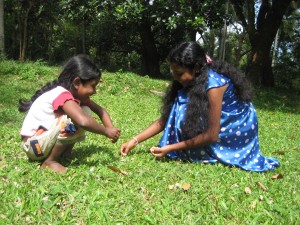 Consider the IDPs. Consider the acronym. IDP. Internally displaced person. Well, one cannot for reasons of space refer to all the 200,000 persons displaced by name, but ‘IDP’ certainly makes them nameless, turns them into numbers. Today we know that some women decided to conceive so that they could escape (for a few years) forced conscription. Today we know that the LTTE deliberately burnt the temporary shelters of people living in the No-fire Zone so that they would be forced to spent sweltering days out in the sun, suffering dehydration and be rendered less able to make a break for freedom. Will we stop to remind ourselves again and again that these 200,000 plus people have at least 200,000 stories and that most of them cannot be happy ones? Would we see in the elderly man carrying a suitcase on his head and ‘sprinting’ to freedom our fathers? Would we each recognize our grandmothers in the breaking voice of the old woman lamenting the death of a child or heart-broken because someone near and dear didn’t make it and might have died?
Consider the IDPs. Consider the acronym. IDP. Internally displaced person. Well, one cannot for reasons of space refer to all the 200,000 persons displaced by name, but ‘IDP’ certainly makes them nameless, turns them into numbers. Today we know that some women decided to conceive so that they could escape (for a few years) forced conscription. Today we know that the LTTE deliberately burnt the temporary shelters of people living in the No-fire Zone so that they would be forced to spent sweltering days out in the sun, suffering dehydration and be rendered less able to make a break for freedom. Will we stop to remind ourselves again and again that these 200,000 plus people have at least 200,000 stories and that most of them cannot be happy ones? Would we see in the elderly man carrying a suitcase on his head and ‘sprinting’ to freedom our fathers? Would we each recognize our grandmothers in the breaking voice of the old woman lamenting the death of a child or heart-broken because someone near and dear didn’t make it and might have died? 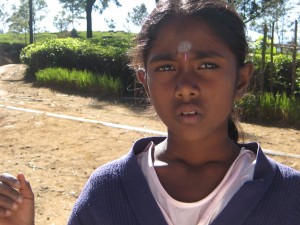 Would we see in the bewildered eyes of a child the incomprehensibility we never want to see in our own children? When we see a picture of a family clutching a bundle of belongings will we wonder what we would choose to take with us if we had to flee our homes at a moment’s notice?
Would we see in the bewildered eyes of a child the incomprehensibility we never want to see in our own children? When we see a picture of a family clutching a bundle of belongings will we wonder what we would choose to take with us if we had to flee our homes at a moment’s notice?
Will we understand that almost every family from the Wanni would include at least one person who is ashamed of the fact that crimes against humanity were perpetrated by the LTTE in their name, that the LTTE brought disgrace to their community? Will we understand that in every family there was someone who died and that a child or a father does not cease to be a child or a father just because she/he died in battle, in uniform, or as a suicide bomber seeking to kill innocents? 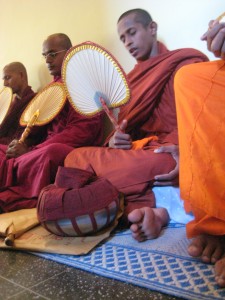 Would we acknowledge that many innocents had to die, many whose only crime was being in the wrong place and the wrong time? Would we have anything to say to the loved ones of the unnecessarily dead? Will we commiserate with them in the same tone, heartbeat murmur and tear-temperature as we did with the near and dear of those who died in the Pettah bomb blast, the Dehiwala attack, the Borella attack, the attack in Kebithigollewa? Would the place names familiar to the Tamil dead roll off our tongues as easily as Aranthalawa, Kanthalai, Kebithigollewa, Dutuwewa etc., even as we recognize difference in purpose and method?
Would we acknowledge that many innocents had to die, many whose only crime was being in the wrong place and the wrong time? Would we have anything to say to the loved ones of the unnecessarily dead? Will we commiserate with them in the same tone, heartbeat murmur and tear-temperature as we did with the near and dear of those who died in the Pettah bomb blast, the Dehiwala attack, the Borella attack, the attack in Kebithigollewa? Would the place names familiar to the Tamil dead roll off our tongues as easily as Aranthalawa, Kanthalai, Kebithigollewa, Dutuwewa etc., even as we recognize difference in purpose and method?
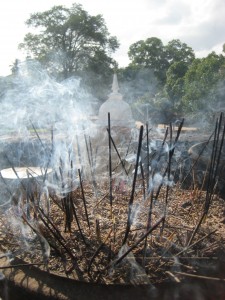 There was an ‘LTTE-time’. That was a forbidding time. The LTTE did not give any of us the space to think ‘human being’. Those who chose to think ‘human’ and to ignore the reality of ‘terrorist’ altogether, took us up the garden path and while we were sniffing the flowers the LTTE went around killing people. It was a time that required ending and it was abundantly clear that this time could not end unless the LTTE was taken out of the equation. It is not that the forces were inhuman or that we were and there’s ample evidence to support this thesis, but tenderness must necessarily be made secondary when fighting a brutal terrorist.
There was an ‘LTTE-time’. That was a forbidding time. The LTTE did not give any of us the space to think ‘human being’. Those who chose to think ‘human’ and to ignore the reality of ‘terrorist’ altogether, took us up the garden path and while we were sniffing the flowers the LTTE went around killing people. It was a time that required ending and it was abundantly clear that this time could not end unless the LTTE was taken out of the equation. It is not that the forces were inhuman or that we were and there’s ample evidence to support this thesis, but tenderness must necessarily be made secondary when fighting a brutal terrorist.
Today we are not in an ‘LTTE-time’. We are in a post-LTTE time.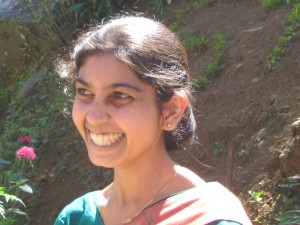 I believe that this is a moment when we can, if we so want, look beyond identity and see human being, look beyond label and political familiarity and recognize ourselves in these ‘other people’. Seeing pictures of people who had fled LTTE-controlled areas, it occurred to me that my arms were not long enough to embrace all those who deserve embrace (and I was convinced that the vast majority are not unworthy of embrace). It occurred to me also that this country must cultivate a willingness to embrace; a readiness to engage, to tolerate, to affirm chosen identity but respect difference, to celebrate the defeat of a brute and at the same time resolve to recognize the vulgarity of celebration in certain contexts.
I believe that this is a moment when we can, if we so want, look beyond identity and see human being, look beyond label and political familiarity and recognize ourselves in these ‘other people’. Seeing pictures of people who had fled LTTE-controlled areas, it occurred to me that my arms were not long enough to embrace all those who deserve embrace (and I was convinced that the vast majority are not unworthy of embrace). It occurred to me also that this country must cultivate a willingness to embrace; a readiness to engage, to tolerate, to affirm chosen identity but respect difference, to celebrate the defeat of a brute and at the same time resolve to recognize the vulgarity of celebration in certain contexts.
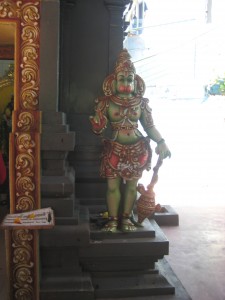 In this post-LTTE moment, in this ‘non-LTTE time’ let us also remember that the more arduous task of rebuilding our nation, resolving the problems of poverty, drugs, crime and political violence and creating a more democratic, tolerant and hard-working society has begun. Let us remember to recall the common humanity of all communities, the essential goodness of all religious faiths and the splendor of all cultural traditions and create a space for all these things to thrive in harmony.
In this post-LTTE moment, in this ‘non-LTTE time’ let us also remember that the more arduous task of rebuilding our nation, resolving the problems of poverty, drugs, crime and political violence and creating a more democratic, tolerant and hard-working society has begun. Let us remember to recall the common humanity of all communities, the essential goodness of all religious faiths and the splendor of all cultural traditions and create a space for all these things to thrive in harmony.
I believe we fought the necessary fight, we fought it well and we have come through scarred, crippled but unbowed and with our ability to slay our ghosts intact. We have come through the long tunnel called a 3-decade war. 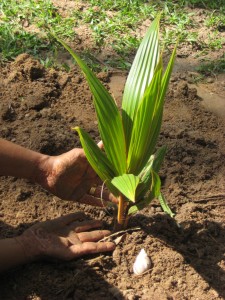 It is time to welcome the dawn, the post-LTTE dawn — with pride, a sense of self-worth, with pomp and pageantry if necessary, but most certainly with reflection, humility and compassion.
It is time to welcome the dawn, the post-LTTE dawn — with pride, a sense of self-worth, with pomp and pageantry if necessary, but most certainly with reflection, humility and compassion.
Malinda Seneviratne is an award-winning journalist and reporter based in Colombo, Sri Lanka. His political commentary appears internationally and he was a part of an international team of election monitors during the U. S. Presidential elections. This article first appeared in The Nation, Sri Lanka. He edits the monthly magazine, Spectrum, and he can be contacted at malinsene-AT-gmail.com


Thank you for this.
Good article. well written!
John
I hope all Sri Lankan’s irrespective of their ethnicity will read this. Let there be understanding, tolerance and healing in all hearts!
I hope all Sri Lankans irrespective of their ethnicity will read this. Let there be understanding, tolerance and healing in all hearts!
I couldn’t articulate nor understand my inability to feel jubilation but intense sadness at such a historic moment till I read you. I spoke to a close Tamil friend in Toronto today and realised what a unique strength our inter-ethnic friendship is and emerged from this protracted and bitter conflict intact. I have annoyed my Sinhalese friends on Facebook and feel emotionally drained after a month and a half of dysfunctional despair and ache for those civilians who are unique in that they are the wretched of the wretched: bombed at both ends and dignified by no one. Lets light a candle and wave our flags. You have inspired me with this moving but realistic articulation of the complex aftermath of the LTTE era. Am proud to be a Sri Lankan if it includes those like you. Let us hope that this compassionate stance will prevail. Please God it will. I love my country and its peoples.
Just beautiful! I had tears in my eyes as I read this brilliant article. I havent read one like this in recent times when everyone is just busy taking sides.
I have one message for all…look at Humanity, not Nationality. Let’s rise above it all and see the bigger picture. We are ONE.
I applaud ya!
Keshi.
Well said. You got to publish this in news papers
Bravo…. Peace was tried but it failed finally the political will to wipe out the scourge of terrorism emerged all credit to the President despite substantial International pressure. But like you say the real work begins now build capacity and capability up North as is required in equal measure in the deep South. A lot of damaged hearts and minds need healing with care. Resttle people as a matter of urgency most people strive to work, earn a living and live in peace. I hope we set aside our religious fervour which raises its ugly head. We need to have our politics secular, Religion is personal to the self not a matter for the whole. We all support the future of our land.
Thank you for this beautiful and moving article. You have deeply touched me with the magnitude of what has been achieved. You have also awakened in me some areas of indifference (partly due to ignorance and partly due to being away from Sri Lanka for many years). Your article has been powerful enough to give me back that sense of patriotism that seemed dormant for many years.
Well done. A wonderfully balanced point of view devoid of the name calling, venemous attacks that have so often characterised your writing. As you well know your words are your weapon and far too often I have seen you use them to accuse and wound unjustly. I hope you will continue in this vein.
It is indeed beautifully written but I wonder … In the first place, no one said that the LTTE would not be destroyed in this war as it was determined and brual enough to do that, and was informed by the government’s formerly terrorist bedfellows (so there is your secret service).
Are we saying that any means justifies the end? Are we decrying the violence of one party and upholding the violence of another party which has supposedly “quelled” the former kind of violence? Is the LTTE spirit really dead, just becuase we have destroyed their military power? Is the LTTE psyche still alive? It seems so.
The nation that I know is still broken, there is vehement disagreement on the way forward, and the present regime does not look like it is able to provide a political solution that could radically revisit the way we have seen this conflict, or could satisfy moderate Tamils. This article does not articulate the role that Sinhala fundamentalism has played in precluding a moderate solution to the ethnic crisis, which has been as detrimental as Tamil fundamentalism, and does not seem to see the full complexity of the issue. It does not talk about the hatred that people in this country are facing for highlighting human rights violations, and labelling those that do so “traitors” to the nation, a sentiment expressed in the “victory” speech of the Leader of the present regime.
Beutiful yes, and the goodwill for a peaceful Sri Lanka is commendable, yes, but we have a tougher path to trudge, and we all need to get together to realize that the final solution will need more than a Sinhala idealist’s perspective. And the beginning to the healing is saying that this massive destruction that happened in the name of destroying the LTTE should not have happened, and asking for a big apology for all the deaths, displacements, disability and destruction of Tamil and Sinhala people, both civilian and combatant.
I find your articles insightful and you write very well.
In this article, i thought the comparison of the JVP to the atrocities of the LTTE was somewhat extreme.
Also, If there is to be a post LTTE environment and empathy towards the issues and supporters of the LTTE; then the tamils (especially those who are no longer SL citizens) need to let go of old grudges too and look to the future.
The Eighteenth Brumaire of Napoleon Bonaparte.